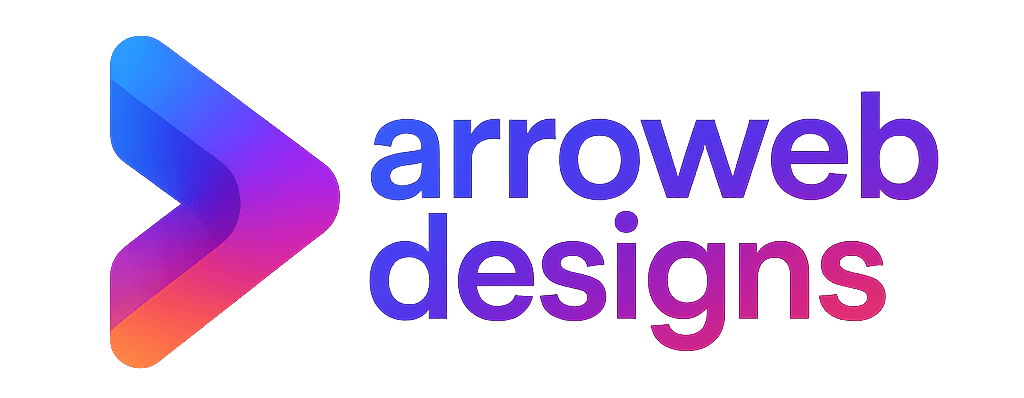In today’s digital era, having a website for your business is more than just a necessity—it’s crucial for your growth and success. Whether you’re a small local business or a global brand, your website is your most valuable digital asset. But why exactly is it so important for your business? Let’s dive into the key reasons why every business needs a website and how it can help you grow.
1. Your Website is Your Online Business Hub
A website acts as your business’s home on the internet. It’s where potential customers can find all the necessary information about your products, services, and brand. A user-friendly, informative website ensures your business is accessible to a wider audience. Without a website, you risk losing potential customers to competitors who are easily discoverable online.
SEO Tip: Use local SEO keywords, such as “best [product/service] in [location],” to improve visibility and attract targeted customers in your area.
2. Build Trust and Establish Credibility
A professional and well-maintained website builds trust with your customers. In fact, 75% of people judge a company’s credibility based on its website design. By having an informative site with contact details, testimonials, and an “About Us” section, you establish your business as trustworthy and legitimate.
SEO Tip: Include trust-building content like client reviews, case studies, and certifications to increase your credibility in both search rankings and with customers.
3. Your Website Works for You 24/7
A website offers your business a competitive edge by being available to customers round-the-clock. Unlike physical stores, your website doesn’t close at 5 PM. Potential customers can browse your products, read reviews, or get in touch with you at any time. This level of accessibility is invaluable for growing your business.
SEO Tip: Optimize your website for mobile devices to ensure customers have a seamless experience no matter when or where they visit your site.
4. Improve Visibility with SEO
Search engine optimization (SEO) is a powerful tool to help your business get discovered online. With proper SEO strategies, your website can rank higher on search engines like Google, making it easier for customers to find you. SEO helps you target the right keywords that potential customers are using to search for your products or services.
For example, if you run a bakery in New York, optimizing for keywords like “best bakery in New York” or “fresh cakes in New York” can increase your chances of appearing in search results when someone searches for these terms.
SEO Tip: Focus on keyword-rich, informative content, fast page loading speeds, and good mobile optimization for better search rankings.
5. Leverage Your Website for Effective Online Marketing
Your website is the cornerstone of all your online marketing efforts. Whether you’re using paid ads, social media campaigns, or email marketing, your website acts as the destination for these efforts. By directing customers to your website, you create a consistent and cohesive online experience.
SEO Tip: Incorporate internal linking strategies to guide visitors to relevant pages, and use clear calls to action (CTAs) to convert visitors into leads or customers.
6. Improve Customer Engagement with Interactive Features
A well-designed website allows you to enhance customer engagement. You can offer features like live chat, FAQs, blog posts, and user reviews to provide valuable information to your visitors. Interactive elements like contact forms or appointment scheduling can also streamline the process of converting website visitors into customers.
SEO Tip: Include rich media like images, videos, and infographics to make your website more engaging, while ensuring that these elements are optimized for speed and performance.
7. Track and Analyze Customer Behavior
One of the greatest advantages of having a website is the ability to track and measure performance. With tools like Google Analytics, you can gain insights into how visitors are interacting with your site, which pages are performing best, and which products or services are the most popular. This data helps you make informed decisions about your business strategy and marketing efforts.
SEO Tip: Use data to identify high-performing pages and optimize underperforming ones with targeted keywords and updated content to increase engagement.
8. Stand Out from the Competition
A professional website helps you stay competitive in your industry. With more businesses moving online, not having a website can put you at a significant disadvantage. A website allows you to showcase your unique selling proposition (USP) and differentiate yourself from the competition.
SEO Tip: Use SEO to identify gaps in the market that your competitors aren’t addressing. Focus on unique keywords that align with your business strengths to capture an untapped audience.
9. Sell Online with E-Commerce Capabilities
If your business sells products, a website can serve as a sales platform for e-commerce. By adding an online store, you can reach customers beyond your local area and provide a seamless shopping experience. E-commerce websites also allow you to manage inventory, offer secure payment options, and track sales easily.
SEO Tip: Ensure your product pages are optimized for search engines, using keyword-rich descriptions, high-quality images, and clear product details.
10. Use Your Website for Lead Generation
Your website can be a powerful tool for lead generation. You can collect customer data, such as email addresses and phone numbers, through forms, newsletters, or special offers. This helps you stay connected with prospects and nurture them through the sales funnel.
SEO Tip: Create targeted landing pages and lead magnets (like free resources, guides, or offers) to increase conversions from site visitors.
Conclusion
Having a website is no longer optional—it’s a must for any business that wants to thrive in today’s digital world. Your website serves as your online business hub, builds trust with customers, improves visibility, and provides valuable insights into your audience’s behavior. It’s an essential tool for marketing, e-commerce, customer service, and lead generation.
For SEO purposes, make sure your website is optimized for both search engines and user experience. With the right strategies, your website can help you attract more visitors, convert leads, and grow your business.

